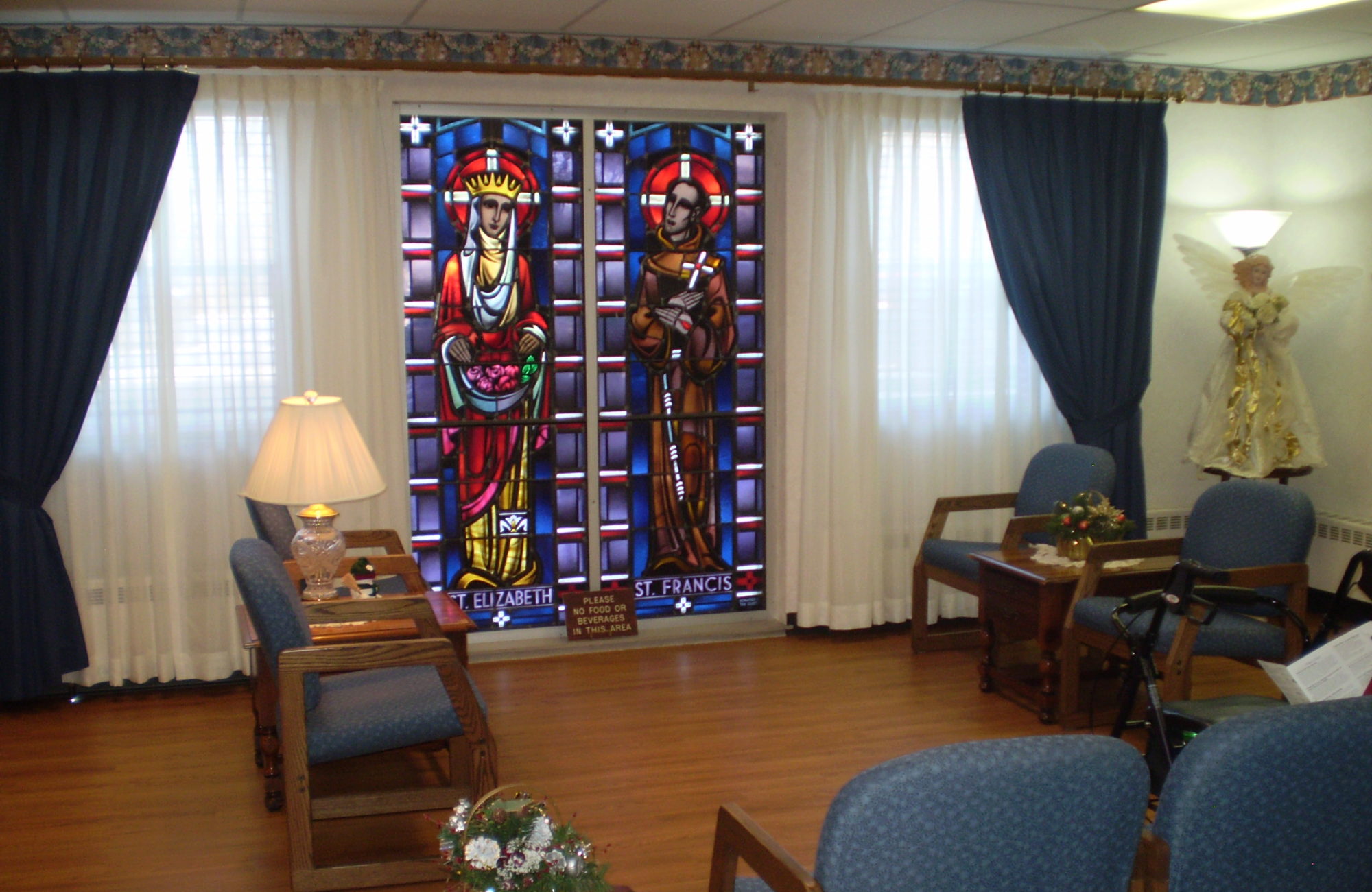 If you sit in the St. Anne’s resident dining room at mealtime, you see quite a bit: people eating their meals and maybe even enjoying a conversation with table-mates. If you have the front door in view, you also may notice our “automatic door system,” as we sometimes have jokingly called it. Actually, we don’t have electronic doors to the dining room, but the alternative offered here is much better, anyway; that is human courtesy. When staff or other able-bodied residents see a person with a walker or other impediment getting up from the table to leave, some are quick to “beat them to the door,” which they hold open until the person is through.
If you sit in the St. Anne’s resident dining room at mealtime, you see quite a bit: people eating their meals and maybe even enjoying a conversation with table-mates. If you have the front door in view, you also may notice our “automatic door system,” as we sometimes have jokingly called it. Actually, we don’t have electronic doors to the dining room, but the alternative offered here is much better, anyway; that is human courtesy. When staff or other able-bodied residents see a person with a walker or other impediment getting up from the table to leave, some are quick to “beat them to the door,” which they hold open until the person is through.
In the course of a meal, one sees this again and again. Today, there is often talk about how good manners, courtesy, and other practices of human decency have greatly diminished from the way things once were. However, time spent in the dining room here can rekindle in one a sense that courtesy is still alive and well.
This is not to say that we are all perfect or show the utmost courtesy and respect at all times; it is easy to follow one’s own agenda rather than patiently wait a little. Therefore, might we consider a few tips for being courteous:
- Simply smile: It’s free, costs you no time, and actually may be physically beneficial to you, not to mention cheering up the recipient. (See our article on the topic.)
- Be polite in speech: Use please, thank you, and other kind words as well as a kind tone of voice.
- Hold the door for others, especially those who have mobility issues: it won’t cost you more than a few seconds but speaks volumes, saying “You are worthwhile!”
- If someone looks or sounds like they’re having a tough day or are lonely, stop and visit with them, showing you care.
- If you meet someone in the hall and they are a bit slower than you, rather than cut in front of them, stop and wait, even engage them in conversation while doing so.

